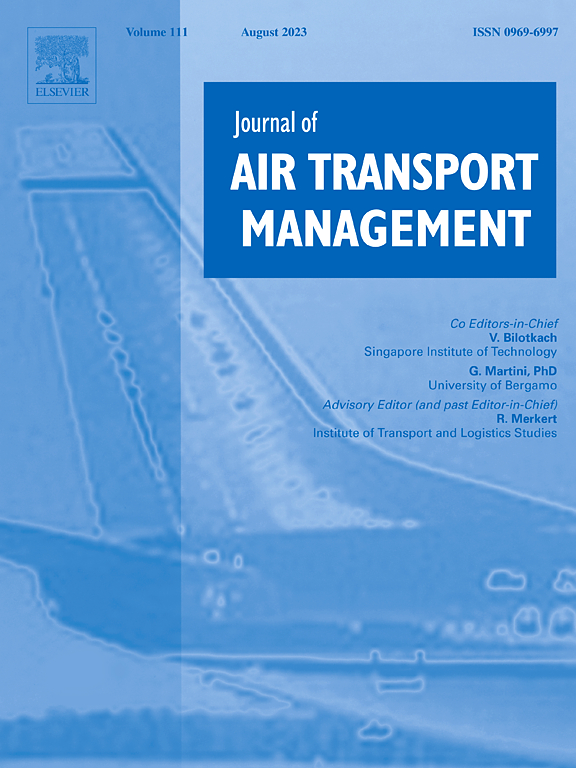Sustainable aviation fuel supplier evaluation for airlines through LOPCOW and MARCOS approaches with interval-valued fuzzy neutrosophic information
IF 3.9
2区 工程技术
Q2 TRANSPORTATION
引用次数: 0
Abstract
In line with the 2050 net zero emission target, sustainable aviation fuel (SAF) is recognized as one of the most effective decarbonization solutions for the aviation industry, which has been identified among the critical areas for mitigating climate change. However, although sustainability issues and decarbonization have attracted scholars' attention in various terms for the airline industry, we identified some significant theoretical and managerial gaps as follows: (i) the number of studies evaluating sustainable suppliers by airlines via multi-criteria decision-making (MCDM) approaches are very few, (ii) the extant literature has no paper addressing airlines' SAF supplier selection process, and (iii) no widely established criteria set in the literature to evaluate the SAF suppliers for airlines. We propose a novel model for the decision-making process of airlines' sustainable SAF supplier selection, including 39 criteria from 5 aspects considering the triple bottom of sustainability. The proposed model involves the combination of the logarithmic percentage change-driven objective weighting (LOPCOW) and measurement alternatives and ranking according to the compromise solution (MARCOS) approaches' extended forms based on the interval-valued fuzzy neutrosophic numbers (IVFNN). A comprehensive sensitivity and comparison control is further exploited to display the developed framework's robustness and practicality. Our results suggest that airlines prioritize the green initiatives of SAF suppliers over the economic aspect in the process of sustainable SAF supplier selection. We provide some managerial and policy insights for practitioners and policy-makers in the airline industry and some directions for further research.

求助全文
约1分钟内获得全文
求助全文
来源期刊

Journal of Air Transport Management
TRANSPORTATION-
CiteScore
12.40
自引率
11.70%
发文量
97
期刊介绍:
The Journal of Air Transport Management (JATM) sets out to address, through high quality research articles and authoritative commentary, the major economic, management and policy issues facing the air transport industry today. It offers practitioners and academics an international and dynamic forum for analysis and discussion of these issues, linking research and practice and stimulating interaction between the two. The refereed papers in the journal cover all the major sectors of the industry (airlines, airports, air traffic management) as well as related areas such as tourism management and logistics. Papers are blind reviewed, normally by two referees, chosen for their specialist knowledge. The journal provides independent, original and rigorous analysis in the areas of: • Policy, regulation and law • Strategy • Operations • Marketing • Economics and finance • Sustainability
 求助内容:
求助内容: 应助结果提醒方式:
应助结果提醒方式:


